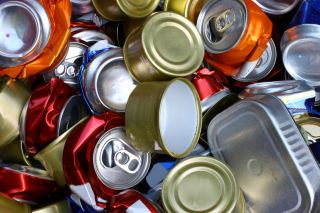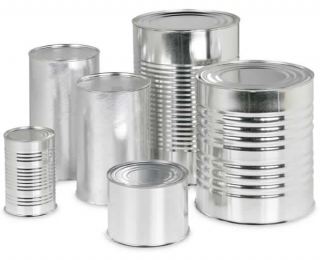MetPac-SA sets its sights high
MetPac-SA, the newly-formed producer responsibility organisation representing the steel, tinplate and aluminium packaging industries, has identified the increase of the recycling of metal packaging as one of its main objectives.
Precious metals in the recycling stream
“Aluminium and steel packaging are the world’s most recycled packaging and are literally worth their weight in gold. Originally, beverage cans were made from steel, and have successfully been collected in South Africa for the past 25 years. In many regards, it can be said that we have lead the way for responsible recovery and recycling of packaging in our country,” says Delanie Bezuidenhout, CEO of MetPac-SA.
According to Delanie, aluminium and metal cans are regarded as high value items by recyclers, and therefore has the potential for generating greater income and securing bigger margins across the entire collection chain. “Buy-back centres continue to pay well for cans that are collected, thereby providing a much needed income for schools and informal collectors. We want to ensure that every can entering the market is collected and recycled and that everybody in the value chain works together – from the informal collectors pushing their trolleys, through to the scrap dealers,” she stated.
Recycling aluminium cans not only saves on scarce natural resources, such as Bauxite - the principal ore used for aluminium production imported from tropical and sub-tropical areas such as the West Indies, South America and Australia where it naturally occurs - but also on energy. “Twenty recycled cans can be made with the energy needed to produce one new can using primary aluminium ingot. Similarly, recycling one beverage can saves the amount of energy needed to burn a 100w bulb for 4 hours,” Delanie explained.
Spreading the message to the community
Over the past 25 years, the local cans industry has built an impressive track record of recycling accomplishments, thanks to the terrific work done by Collect-a-Can and their shareholders who have achieved much success with their recoveries and ongoing education about recycling. Founded by ArcelorMittal South Africa and Nampak as a way to proactively address the beverage can industry's responsibility to the environment, Collect-a-Can has played a major role in the recovery of scrap tinplate generated in the tinplate and can-making processes, including cut-offs, misprints, sub-standard fills, and most importantly used metal cans.
When Collect-a-Can began, there was no unified policy on addressing the growth of waste. The public was sceptical and automatically opposed to new waste site proposals. Since then, much has changed as thought and support are given to regulations for waste and environmental control. This has helped to improve southern Africa’s used beverage can recovery rate from 18% to around 72%. It is one of MetPac-SA’s key objectives to build on the successes the industry has achieved thus far with the effective collection and recycling of steel cans.
Industry taking responsibility for its waste
“We are also fortunate to have important end-users such as Hulamin on our Board of Directors, as they understand the important role recycling plays in ensuring the sustainability of our industry and the environment,” Delanie says. Over the past 75 years, Hulamin has intimately been involved in the recycling of their internally generated process scrap as well as the fabrication scrap generated by customers. They took this commitment a significant step further by investing R300m two years ago in a recycling plant that process and cleans used beverage cans, thereby enhancing the company’s capability in the recycling of aluminium scrap.
“Recycling certainly makes a lot of business sense to us and for this reason we have adopted the principle of ‘extended producer responsibility’ in our business. Simply put, this means that if we make a product, we also take our share of the responsibility for its recycling at the end of its life,” says Riccardo Benedetti, Commercial Manager: Metals and Recycling at Hulamin. “Recycling not only supplies us with aluminium raw material, but also ensures that products made from our aluminium are not lost to the precious aluminium resource pool,” he adds.
Scrap with worth
A key recycling collection channel for the metals sector is the scrap metals industry. “We are expecting the amount of aluminium recoveries from beverage cans alone to increase significantly over the next 5 years. In order to minimise the risk of illegal scrap exports, which ultimately reduces the locally-available scrap pool, MetPac-SA will also be closely monitoring and working with the players in this sector,” Delanie explains.
Delanie stresses that MetPac-SA is open to collaborating on recycling initiatives with different associations in order to step up its recycling successes. “We believe that significant benefits and synergies can be unlocked by packaging waste streams joining hands and working together. For example, material collection can greatly be enhanced through reverse logistics in the supply chain.
Driving the recycling message home
Although there are numerous recycling initiatives and incentives established in communities around the country, as well as collection points in close proximity to neighbourhoods, MetPac-SA believes that an inherent recycling culture still needs to be established in South Africa.
“We're adding our voice to that of other material streams in educating the public around the why, what and how of recycling. Once consumers truly understand the need and value of recycling and the importance of reusing metal packaging, they will stop citing factors such as drop off points or storage space as barriers to recycling. However, we do agree with the repeated calls by more established players in the packaging industry that an effective separation-at-source infrastructure needs to be implemented at municipal level,” she appealed.
For more information, about MetPac-SA, please our website at www.metpacsa.org.za
The Mettle of Metal Packaging
The newly formed Producer Responsibility Organisation (PRO) tasked specifically with looking after the interests and recycling of steel, tin plate and aluminium packaging, MetPac-SA, says metal packaging is arguably one of the most reliable and versatile types of packaging used in South Africa and the world today.
Multiple benefits
“Metal packaging comes in a wide range of sizes – from a small can for tomato concentrate, to a steel drum for bulk tomato transport, and everything in-between. Despite holding a relatively small share of the total packaging market, factors such as innovation, new introductions and significant promotional activity are driving the ever-increasing demand for cans,” says Delanie Bezuidenhout, CEO of MetPac-SA.
Bezuidenhout advocates that metal and aluminium cans are becoming increasingly popular as a packaging option, owing to the multitude of sizes, shapes and printing designs can be manufactured to individual customer requirements. “Innovation sells packaging and packaging sells products. The lightness of aluminium packaging helps to save resources during filling, product transportation, storage and the transportation of scrap at the end of a product’s life. Thanks to its unique attributes, cans act as food warehouses that have unrivalled shelf lives. They are able to protect their contents over many months, with no refrigeration, and therefore helps to save food, energy and prevent wastage. Furthermore, metal and aluminium cans are unbreakable, impact-resistant and puncture-resistant and able to withstand extreme temperatures and pressure,” she says.
Growing market share
“Although the market share for metal packaging has traditionally been relatively small (216.8 tonnes of 3 490.1 tonnes, according to the latest stats available to Packaging SA) we believe it is poised for growth as South Africans are increasingly choosing cans as the packaging material of choice when it comes to both their drinking, food and general packaging preferences. Beverage cans today are among the lightest beverage packages, while at the same time being extremely robust and protective of their contents. Today, cans can be produced with a wall thickness of 0.097 mm – as thin as a human hair”, she says.
Safety throughout the supply chain
Metal or aluminium cans offer brand owners a proven safety and sustainability record and excellent performance through the supply chain. Because metal cans are designed to meet the demands of our modern lifestyles, they are unbreakable and reduces the risk of leaking or tearing during transportation. “The lightness of aluminium packaging helps to save resources during filling, product transportation, storage and the transportation of scrap at the end of a product’s life. The weight of aluminium cans has been dramatically reduced over the years thanks to technological innovations. Sixty years ago, the first beverage can weighed more than 80 grams. Today a 330 ml aluminium can only weighs about 13 grams – helping us reduce our carbon footprint from manufacturing through to the supply chain, transportation and recycling process (cradle to cradle),” Bezuidenhout says.
Recycling of cans
Metal cans and packaging have high recycling value and are one of the most recycled packaging materials worldwide. 74 % of metal packaging is recycled in Europe, and an estimated 72 % for beverage cans in South Africa – ranking us amongst the best in the world in used beverage can recovery.
“Metals are natural elements that maintain their physical properties forever. When metal products reach the end of their useful life, the materials are simply collected and recycled, again and again, with no loss of their inherent properties. In other words, once metal enters the material-to-material loop, in which it is recycled again and again, it will always be available for future generations,” Bezuidenhout explains.
Conclusion
“The lightness of aluminium packaging helps to save resources during filling, product transportation, storage and the transportation of scrap at the end of a product’s life. Metal offers premium packaging solutions that are able to meet a wide range of market needs, and are proven to be safe and convenient. MetPac-SA is excited to promote the versatility of metals through an ongoing marketing campaign, increase the market share of the industry and protect the interest of its members through stakeholder involvement. We will actively be encouraging more role players to become members in to ensure the local metals packaging industry has a strong voice when matters that directly impact its present and future business interests, are raised”.
For more information on MetPac-SA, email This email address is being protected from spambots. You need JavaScript enabled to view it.



